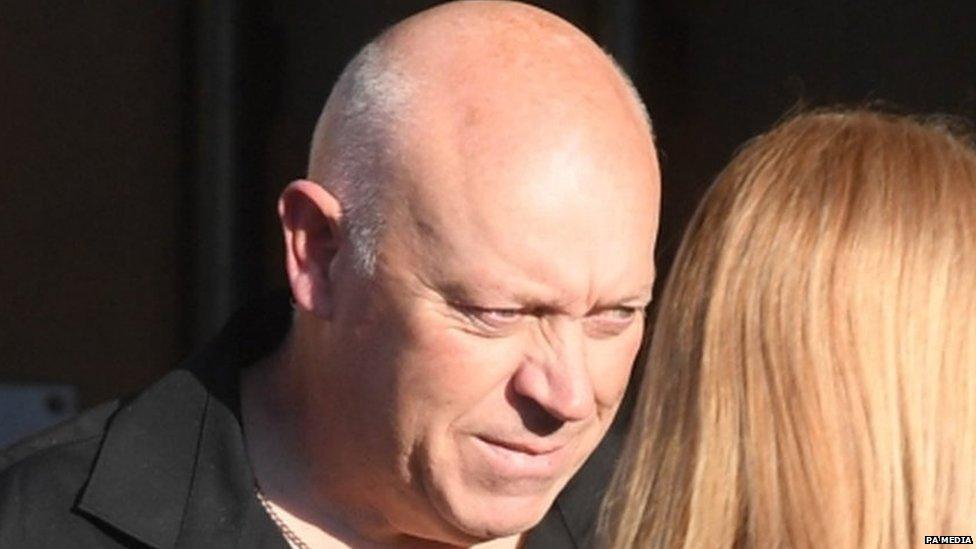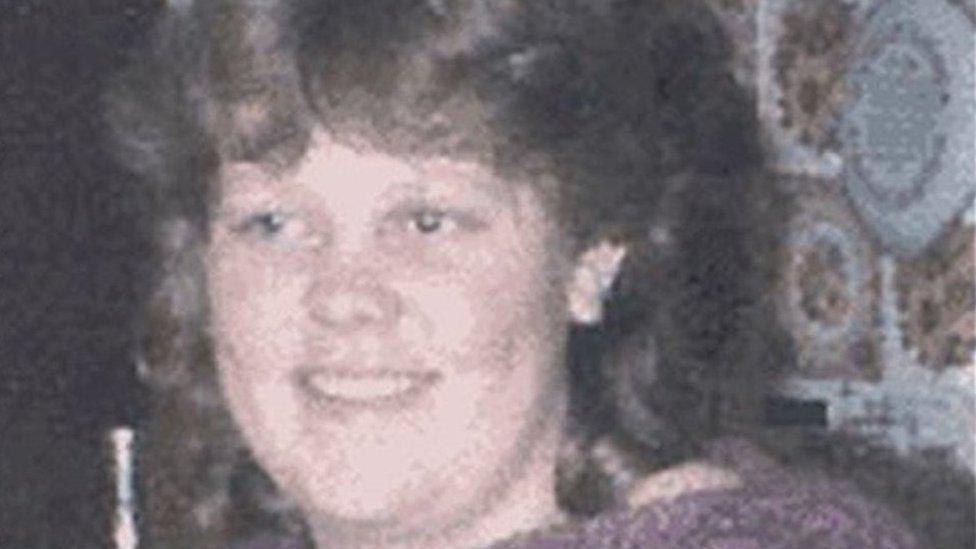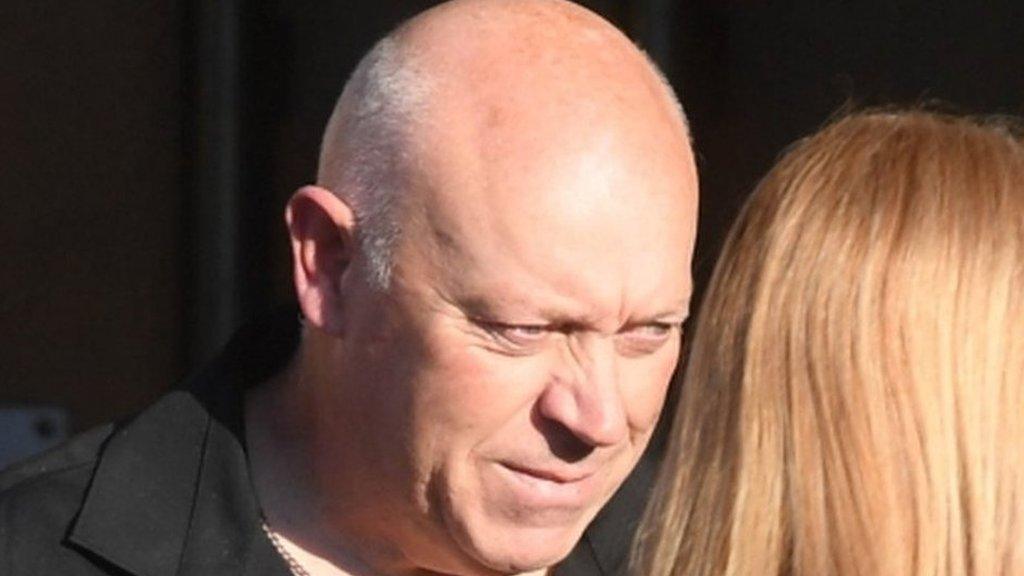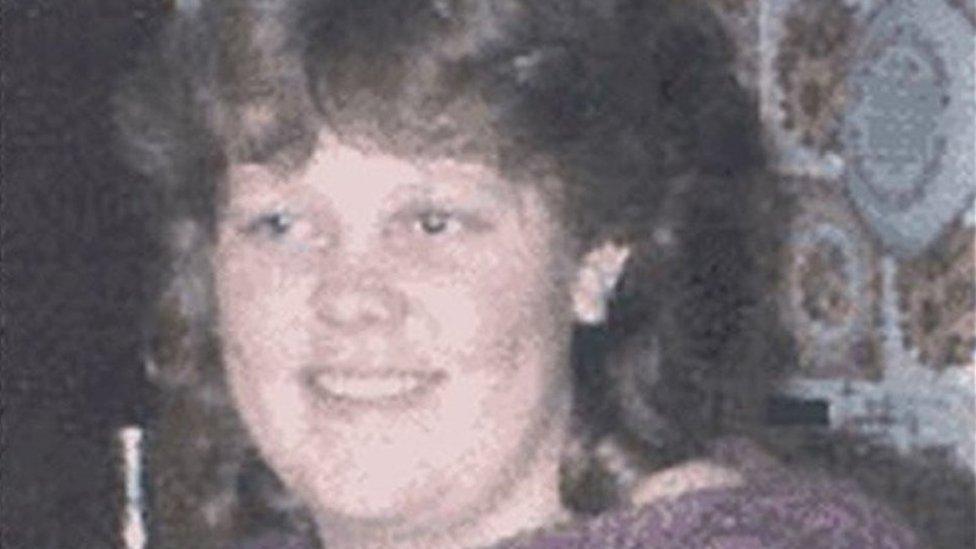Andrew Griggs murder trial: Sailor husband 'dumped wife's body at sea'
- Published

Andrew Griggs denies murdering his wife Debbie Griggs 20 years ago
An amateur sailor has denied murdering his pregnant wife and dumping her body at sea.
Andrew Griggs, 57, is alleged to have killed Debbie Griggs, who disappeared from the family home in Deal, Kent, on 5 May 1999.
Duncan Atkinson QC, prosecuting, asked Mr Griggs if he had buried his wife's body or disposed of her at sea.
"I have done absolutely nothing with her," Mr Griggs told Canterbury Crown Court.
The defendant, of St Leonards, Dorset, said the last time he saw the mother of his three sons she had stormed out while he slept in an armchair, shouting: "Let's see how you cope with [the children] 24 hours a day, seven days a week."
Mr Atkinson retorted: "That is not what happened to your wife.
"She did not leave that house under her own power. She left that house after you killed her."

Debbie Griggs has not been seen since May 1999
"I did not kill Debbie," Mr Griggs responded.
The jury was told two neighbours had seen Mrs Griggs' car being driven from the house at about 02:00 and again at 04:00 on 6 May.
The neighbours saw "someone in Debbie's car making two trips away from your home in the early hours of the morning on the night your wife disappeared," Mr Atkinson said.
"Where is it that you buried your wife?" he asked.
"I haven't buried my wife," Mr Griggs said.
"Or out to sea with her was it?" Mr Atkinson asked.
"No, it wasn't out to sea," Mr Griggs replied. "I have done absolutely nothing with her."
'Not overly worried'
Mr Griggs was questioned about his account of the day after his wife disappeared.
Before phoning police at 21:47 BST on 6 May, Mr Griggs said he went to his family's fishmongers in South Street to turn off a computer and then visited the sailing club to check the fuel on rescue boats, which were his responsibility to maintain.
Asked why he decided to run errands before reporting his wife missing, Mr Griggs said: "I wasn't overly worried."
Several days after his wife went missing, a dental practice manager phoned Mr Griggs to ask for her date of birth and he said it "was 10 December 1964," the court heard.
"When you told them what her date of birth was you did so in the past tense," Mr Atkinson said.
"If she was going to have another birthday ever it would be 'is'. But you knew that she was never going to have another birthday and you knew that because you killed her."
The court had earlier heard Mr Griggs began to file for divorce in March but halted proceedings when they were reconciled later that month.
Mr Atkinson said the defendant had only changed his mind after he discovered his wife would be entitled to half the family business, which she co-owned.
In April 1999, Mr Griggs had complained to a tradesman he was "having a lot of trouble at home with his wife" and "wished her dead", the court heard.
Mrs Griggs had grown increasingly suspicious he was "having a sexual relationship with a 15-year-old" and would herself file for divorce if she discovered it were true, Mr Atkinson said.
The trial continues.

Follow BBC South East on Facebook, external, on Twitter, external, and on Instagram, external. Send your story ideas to southeasttoday@bbc.co.uk.
- Published17 October 2019

- Published10 October 2019

- Published7 October 2019

- Published4 October 2019

- Published3 October 2019
